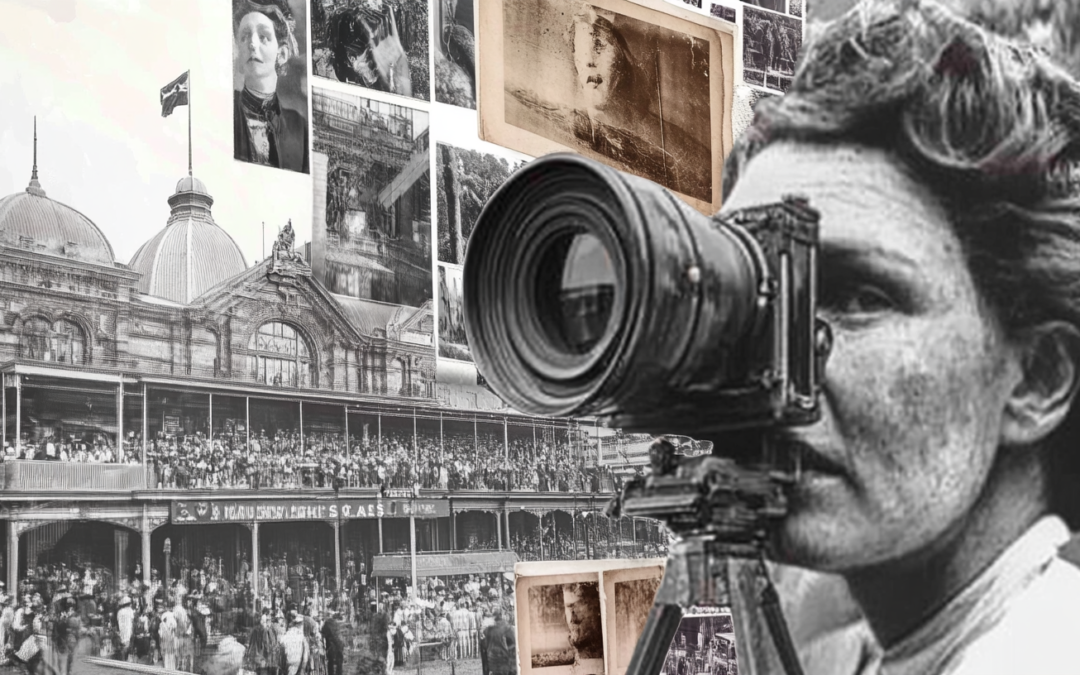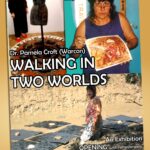Did you know the oldest photo at the Australian Museum is from 1860? This shows how long photography has been around in Australia. It started as a science tool and now is a respected art form.
The first photos were made in 1839 with the daguerreotype. This new way of making images changed everything. It made people see photography in a new light.
Australian photographers have made a big impact on the country’s art. They’ve taken pictures of the Outback and city life. These photos tell stories that are uniquely Australian.
Photography has grown from just taking pictures to being a fine art. Now, galleries show photos alongside paintings and sculptures. This shows how photography is valued in Australia’s art world.
Key Takeaways
- The oldest surviving photograph at the Australian Museum dates back to 1860
- Photography in Australia has evolved from scientific curiosity to respected art form
- Australian photographers have significantly shaped the nation’s visual culture
- The medium has transitioned from a recording tool to a respected fine art form
- Contemporary Australian art galleries now regularly feature photographic works
Early History: Photography in Colonial Australia
Photography in colonial Australia started with a big step. In 1841, the first photo was taken in Sydney. It was a moment that began a new chapter in australian photography history.
By 1842, people could buy portraits for one guinea. This was the start of commercial photography in Australia.
Pioneering Photographers
George Baron Goodman came to Australia in 1842. He took thousands of photos over four years. His work was a big part of australian photography history.
In 1876, the Photographic Society of Victoria was formed. It had 61 members, including 5 women. Thomas Foster Chuck’s 1872 work showed over 700 portraits of explorers and early settlers.
Impact of Technological Advancements on Australian Art
Technology changed Australian photography a lot. The wet-plate process came in 1854. Then, the gelatin dry-plate arrived in 1880.
These new tools helped photographers show Australia’s beauty and people in new ways. They could capture clearer and more artistic images.

Australian Artists Who Redefined Photography
Harold Cazneaux was a pioneer in Australian photography. He helped start the Sydney Camera Circle in 1916. This group worked to create a unique Australian style of photography.
Frank Hurley became famous for his Antarctic and World War I photos. Max Dupain’s 1937 “Sunbaker” is now an iconic Australian photo.
Contemporary Trends in Australian Visual Photography
Australian photography is always changing. The 2011 Census found 9,549 professional photographers in Australia. Today, photography exhibitions in Australia show many styles, from landscapes to abstract.
Photographic art galleries are now a big part of the Australian art scene. They show how important photography has become in Australia.
| Year | Event |
|---|---|
| 1841 | First photograph taken in Australia (Sydney) |
| 1842 | Commercial photography begins |
| 1876 | Photographic Society of Victoria formed |
| 1916 | Sydney Camera Circle founded |
| 1937 | Max Dupain creates “Sunbaker” |
Iconic Australian Photographers and Their Contributions
Australia has many talented photographers. They have shown the beauty of Australia through their photos. Their work has helped grow fine art photography in Australia.
Max Dupain: Pioneer of Australian Photography
Max Dupain worked from the 1930s to the 1990s. He changed how photographers saw Australia. His famous photo “Sunbaker” shows Australia’s beach culture.
Dupain’s work started a new way of seeing photography. He inspired many photographers after him.
Tracey Moffatt: Visual Storytelling Through Images
Tracey Moffatt started in the 1980s. She became famous for her storytelling photos. Her work talks about race and gender in a powerful way.
Moffatt’s style has changed how photographers tell stories. She has influenced many in Australia.
Bill Henson: The Intersection of Light and Emotion
Bill Henson is known for his deep photos. His use of light and shadow is amazing. His photos make people think differently.
Henson’s work has made him famous worldwide. He has changed how we see photography in Australia.
Contemporary Rising Stars in Australian Photography
New photographers are coming up in Australia. Trent Parke and Polixeni Papapetrou are leading the way. They are changing photography with their new ideas.
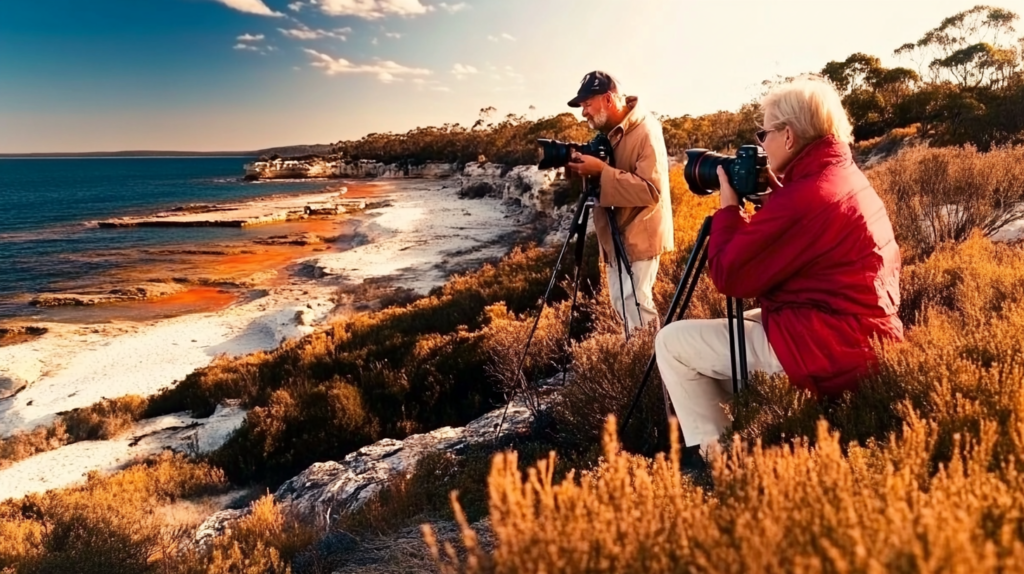
| Photographer | Notable Achievement | Impact on Australian Photography |
|---|---|---|
| Ali Choudhry | Finalist in Bluethumb Art Prize | Bringing diversity to contemporary australian photography |
| Brent Lukey | Finalist in Moran Photographic Prize | Elevating portrait photography in fine art circles |
| Stuart Chape | Two-time finalist in Bowness Photography Prize | Advancing environmental photography in Australia |
| Matty Smith | Winner, Australian Geographic Nature Photographer of the Year 2014 | Pioneering underwater fine art photography australia |
These photographers are making photography in Australia better. Their work shows the talent and views of Australian artists today.
Understanding the Influence of Australian Landscapes on Photography
Australian landscapes have deeply influenced the nation’s photography. They show the beauty and variety of the continent. Photographers capture the essence of Australian culture through their lenses.
Capturing the Outback: A Unique Artistic Perspective
The outback’s rugged beauty inspires photographers. They explore light, color, and texture in their work. Photographers brave harsh conditions to capture Australia’s interior, creating images that touch hearts worldwide.
Coastal Inspirations: Seascapes in Australian Photography
Australia’s coastline is a big part of photography. Photographers show the beauty of waves, sand, and sky. These images are iconic, showing Australia’s love for the ocean.
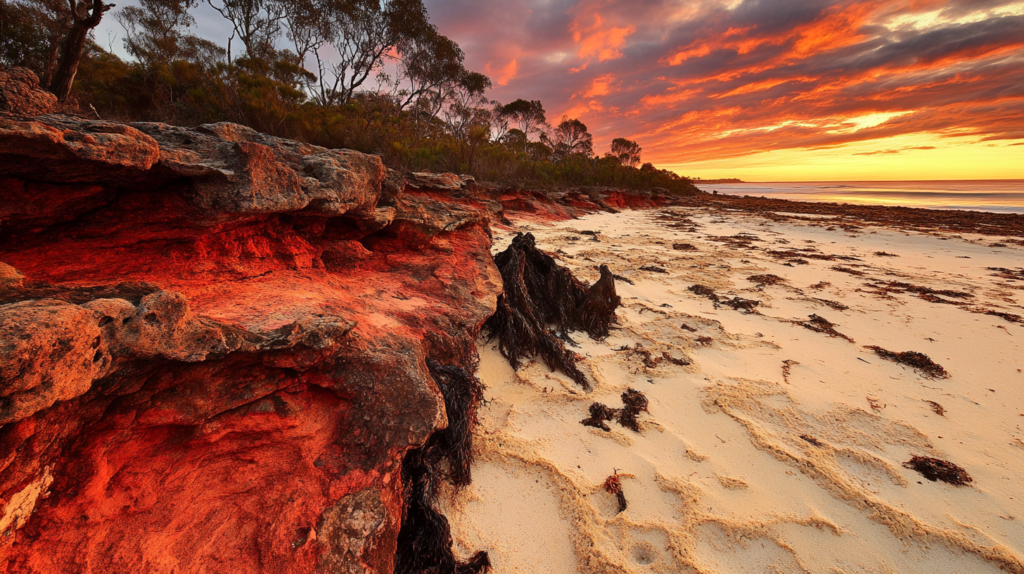
Urban Narratives: Cityscapes as Art
Urban photography is growing, showing Australia’s cities. Photographers capture architecture, culture, and people. This genre adds to Australia’s photography culture.
Indigenous Connections: Nature and Culture Through Photography
Indigenous photographers offer a special view of landscapes. They mix traditional knowledge with new techniques. Their work shows the spiritual bond between land and culture, enriching Australian photography.
| Landscape Type | Key Characteristics | Notable Photographers |
|---|---|---|
| Outback | Vast, arid, dramatic lighting | Ken Duncan, Peter Lik |
| Coastal | Dynamic seascapes, beach culture | Ray Collins, Eugene Tan |
| Urban | Modern architecture, street life | Trent Parke, Narelle Autio |
| Indigenous | Cultural connection, storytelling | Michael Cook, Destiny Deacon |
Australian landscapes inspire many photographers. They create a rich mix of artistic expressions. This visual journey shows the land’s beauty and shapes national identity and culture.
Photography as a Medium for Cultural Expression in Australia
Photography in Australia is a strong way to share culture. It shows the mix of Australian society, from its Aboriginal roots to today’s diversity. This art form is key for telling stories with pictures, showing the many views that make up Australia.
Indigenous Perspectives in Australian Photography
Indigenous photography in Australia is vital for sharing Aboriginal culture. Photographers like Ricky Maynard explore identity and share stories. Their work shows the deep connection to land and traditions of Australia’s First Nations.
Multicultural Influences in Visual Storytelling
Australia’s mix of cultures shines through in photography. Photographers from different backgrounds add to a rich mix of stories. This mix helps us understand and talk about different cultures better.
Documentary Photography Reflecting Australian Society
Documentary photographers record big moments in Australia’s history. Their work shows changes, environmental issues, and daily life. These images teach us and spark important talks about Australia’s growth.
Festivals Celebrating Cultural Photography in Australia
Photography festivals in Australia celebrate many cultures. Events like the Head On Photo Festival in Sydney feature both new and known talents. These festivals honor art and help grow the next wave of photographers.
| Event Type | Attendance Rate (2022) | Change from 2019 |
|---|---|---|
| Visual Arts and Craft Exhibitions | 39% | +2% |
| Painting, Drawing, Printmaking | 21% | +2% |
| Photography Events | 13% | No change |
| Digital or Video Art Events | 10% | +2% |
These numbers show more people are interested in visual arts, like photography, in Australia. The steady interest in photography shows it’s a lasting way to share culture and tell stories.
Techniques and Styles in Australian Visual Art Photography
Australian visual art photography has grown a lot. It now includes many techniques and styles. From Pictorialism to today’s avant-garde, photographers have explored new ways to express art.
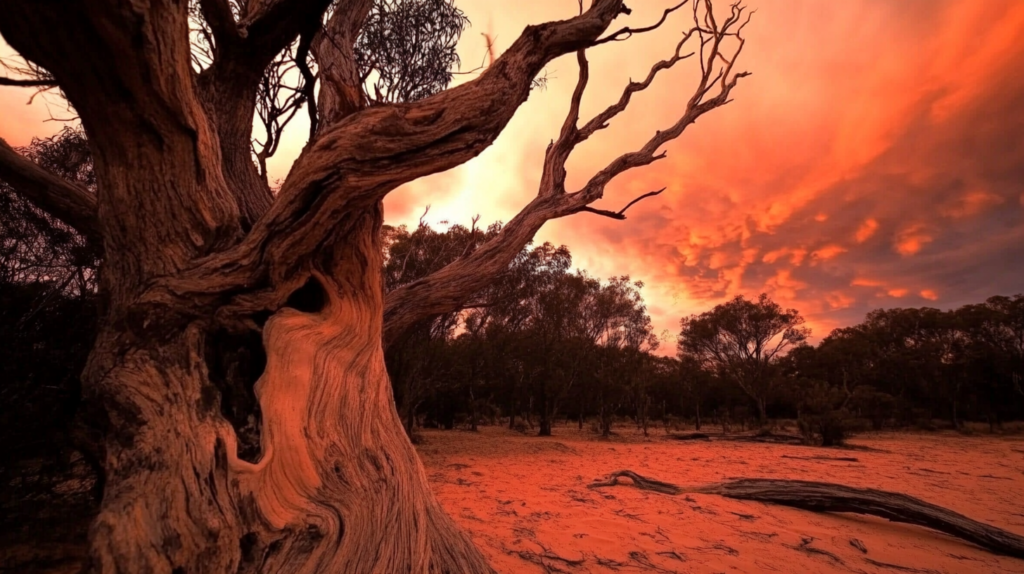
Experimenting with Light and Shadows
Australian photographers are great at playing with light. They use light and shadow to add depth and drama. This is seen in conceptual photography in Australia, where artists use light to share feelings and stories.
The Use of Color and Monochrome in Australian Art Photography
Going from black and white to color photography opened up new ways to express. Some like the classic look of monochrome. Others use bright colors to show Australia’s varied landscapes. This mix is seen in artistic photography exhibitions in Australia.
Abstract Photography: Pushing the Boundaries of Art
Abstract photography is big in Australia’s art world. Artists like Anne Zahalka make images that make you think. They mix reality and fantasy in their work. This trend keeps growing, inspiring many photographers.
Analog vs. Digital: Preferences Among Australian Artists
The digital world has changed photography in Australia. Many artists use digital for its flexibility and editing tools. But, many also stick with film for its feel and look.
| Technique | Characteristics | Notable Artists |
|---|---|---|
| Light and Shadow | Dramatic contrasts, emotive imagery | Max Dupain, Olive Cotton |
| Color Photography | Vibrant hues, landscape focus | Peter Dombrovskis, Ken Duncan |
| Abstract | Non-representational, conceptual | Anne Zahalka, Bill Henson |
| Analog | Film-based, tactile process | Trent Parke, Narelle Autio |
These different techniques and styles keep making Australia’s visual art photography exciting. They inspire new artists and draw in viewers from all over.
The Role of Photography in Australian Contemporary Art Exhibitions
Photography is now a big part of Australian art. It’s seen in more photography exhibitions in Australia. This shows a change in how art is made and what people like.
Key Art Galleries Showcasing Photography in Australia
Photography is loved by galleries in Australia. The Art Gallery of New South Wales saw a 20% rise in photography shows from 2019 to 2022. The National Gallery of Australia also grew, adding 40 new works by young photographers.
Biennales and Photography Festivals in Australia
Big events like the Sydney Biennale and Ballarat International Foto Biennale show off Australian art. They bring in artists from all over. These events have helped show more photography in rural areas, focusing on local artists in 2023.
| Year | Photography in Exhibitions | Visitor Interest |
|---|---|---|
| 2021 | 65% of modern art exhibitions | 45% primary interest |
| 2023 | 40% of major art fair exhibits | 70% critical role in contemporary art |
Public and Private Exhibitions Featuring Local Artists
Local artists are getting more attention. The Australian Centre for Contemporary Art says 45% of visitors love photography most. This has led to more schools teaching photography in Australia.
The Impact of Photography on Art Collectors in Australia
The market for photography in Australia grew by 18% from 2020 to 2023. This shows art collectors are changing their tastes. KODAK (Australasia) PTY LTD helped buy 25 works by young photographers at the Australian National Gallery.
“Photography has become the most impactful medium in contemporary exhibitions, according to 55% of art curators in a 2022 poll.”
Photography’s Role in Preserving Australian History
Photography has helped document Australia’s history. It shows us the nation’s past through pictures. From old landscapes to Indigenous cultures, photos have captured Australia’s rich heritage.
Documenting Australia’s Heritage Through the Lens
Early photographers like Charles Bayliss were key in Australian photography history. Bayliss’s 1885 photo, “Eight Lawrence Hargrave Flying Machine Models,” shows how photos saved history. This way of telling stories with photos is vital for understanding Australia’s growth.
Photographic Records of Indigenous Cultures
Photography has been key in saving Indigenous cultures. Fred Kruger’s 1877 photos of Victorian Aboriginals’ War Implements are a great example. Even though some early photos were wrong, they are now important historical records.
War Photography and Its Impact on Australia
War photos have shaped Australia’s identity. Patrick Dawson’s 1867 photo of the first Aboriginal cricket team in England mixed sports and culture. This method was also used in military photos, like Barcroft Capel Boake’s 1890 “New South Wales Contingent. Soudan Campaign.”
Archival Photography: Saving the Past for the Future
Places like the Art Gallery of New South Wales are key in saving photo history. The 2015 show “The Photograph and Australia” had over 400 photos from 1845 to now. It showed how important saving photos is for Australia’s visual history.
| Exhibition Detail | Information |
|---|---|
| Exhibition Name | The Photograph and Australia |
| Duration | 21st March – 8th June 2015 |
| Curator | Judy Annear, Senior curator of photographs, AGNSW |
| Number of Photographs | Over 400 |
| Featured Artists | More than 120 |
| Date Range of Photographs | 1845 to contemporary works |
Digital Transformation in Australian Photography
The digital age has changed photography in Australia a lot. Social media and new tools have made it different. Now, photographers can share and sell their work in new ways.
Social Media’s Influence on Photography in Australia
Social media has made it easy for photographers to share their work. They can reach people all over the world. This has led to new styles and trends from artists everywhere.
NFTs and Digital Art: Photography in the Blockchain Era
Non-fungible tokens (NFTs) have opened new doors for photographers. They can sell their digital art as unique items. This has changed how people buy and value photography.
Tools and Apps Revolutionizing Photography in Australia
AI tools are helping photographers in Australia. They let artists try new things. The government wants to help artists get better at using digital tools by 2024.
The Challenges of Copyright and Licensing in Digital Photography
Sharing digital photos can lead to copyright problems. Photographers in Australia face tough licensing issues online. They are working on new rules to protect their work while encouraging creativity.
More digital art is being shown in Australia. This shows how technology is changing art. As technology grows, so does what we think of as photography.
Challenges Faced by Australian Photographers Today
The world of photography in Australia is changing fast. It brings both good chances and tough times for artists. Climate change is making famous landscapes change, which is hard for photographers who love to capture these views.
The Impact of Climate Change on Landscape Photography
Climate changes are changing Australia’s natural beauty. This makes photographers have to change how they work. A big 72% of them say it’s hard to make new photos because of more competition and changes in places they like to go.
This problem is making 57% of travel photographers look for new places. They want to keep their photos fresh and different.
Financial Sustainability for Emerging Photographers
Money is a big problem for photographers in Australia. A survey found that 40% of them worry about not having enough money. This has led to more of them working part-time jobs outside of photography.
Also, 50% of Australian photographers think finding a special market is key to keeping their business alive. They face a lot of competition.
Balancing Artistic Vision and Commercial Demands
The need to post photos every day on social media is affecting the quality of art. 85% of photographers say this is a big problem. They struggle to keep their art true to themselves while also making money.
Only 30% of them feel they can always get unique shots in famous places. This shows how hard it is to be creative in a busy world.
Navigating Australia’s Photography Laws and Ethics
Photographers in Australia have to deal with changing laws and ethics. This includes issues like privacy and getting people’s permission. They must keep up with these changes while staying true to their art.
Despite these challenges, Australian photography has a rich history. It has been recognized worldwide and has welcomed many different talents. This history inspires and motivates photographers to keep creating.

